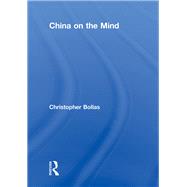- ISBN: 9780415669757 | 0415669758
- Cover: Hardcover
- Copyright: 12/14/2012
Christopher Bollas returns to what he terms the "mother texts" of China-the I Ching, Lao Tzu, Confucius, Zhuangzi-in order to examine the unconscious axioms that inform the Eastern mind. Working from within the maternal order, these texts illuminate how the Eastern mind privileges form over substance, the evanescent over the linear, in ways that also feature in Freud's invention of the psychoanalytical process. Although the maternally-based features of psychoanalysis were not explicitly conceptualized by Freud, they were developed by Winnicott, whose approach Bollas sees as enacting Eastern assumptions within psychoanalytical practice. As psychoanalysis develops in China, Korea, and Japan it will inevitably integrate forms of thought that have evolved over thousands of years as separate Eastern and Western frames of mind. Linking Bion and Rosenfeld's theory of the mind and the group to Confucius' Analects, Bollas argues that ancient China envisioned the mass society and began a long process of unifying individual and collective life. Entering into a cross-millenial dialogue with the ancient texts, Bollas evokes the Eastern mind, allowing it to speak for itself. Excerpts from the writings of the great Chinese philosophers and Korean and Japanese poets, populate the text, conveying the mentality that Bollas examines. He offers a radical and provocative argument that in the East the idiom of a person's being was projected into poetry, so that writing, sharing and reciting poems was akin to self-revelation, something otherwise not permissible in cultures devoted to collective rather than singular being. This book will be of interest to clinicians, academics, and lay readers interested in the meeting points of the Eastern and Western worlds.







